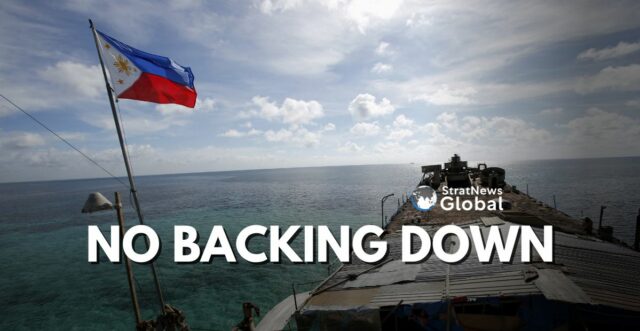The Philippines will continuously deploy vessels in the contested Sabina Shoal in the South China Sea, its coast guard said on Monday after a Philippine ship returned to port after a five-month deployment there.
“We will sustain presence over these waters,” Philippine Coast Guard (PCG) Spokesperson Jay Tarriela told a press conference.
Manila’s Preparedness
The PCG’s vessel, Teresa Magbanua, was deployed to Sabina Shoal in April to monitor what Manila suspects to be China’s small-scale land reclamation activities in the area. It returned to port on Sunday.
Tarriela said the ship’s return was not related to China’s demand for Manila to withdraw its vessel, instead it was so it could be repaired and to attend to the crew’s medical needs. Sabina Shoal, which China refers to as Xianbin Reef and the Philippines as the Escoda Shoal, lies west of the Philippine province of Palawan, within the country’s exclusive economic zone.
“Regardless of what size of vessel, regardless of how many vessels, the main objective and the commitment of the (PCG)commandant… is to make sure that at any one time, there will be a coast guard presence in the shoal,” Tarriela said.
Beijing’s Continued Activities
China’s coast guard said on Sunday it would continue to carry out law enforcement activities in the waters under Beijing’s jurisdiction in accordance with the law and safeguard its territorial sovereignty and maritime rights and interests.
China claims sovereignty over most of the South China Sea, overlapping into maritime zones of Brunei, Indonesia, Malaysia, the Philippines and Vietnam.
In 2016 the Hague arbitration tribunal voided China’s expansive and historical claims, a decision Beijing rejects.
China and the Philippines have been engaged in confrontation over disputed shoals in the South China Sea this year. Both the nations have traded allegations of deliberately colliding Coast Guard vessels in the contested waterway. These incidents have overshadowed both countries’ efforts to restore trust and enhance management of confrontations, including the establishment of new channels of communication to better address maritime disputes.
(With input from Reuters)





